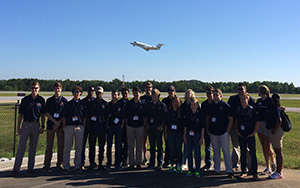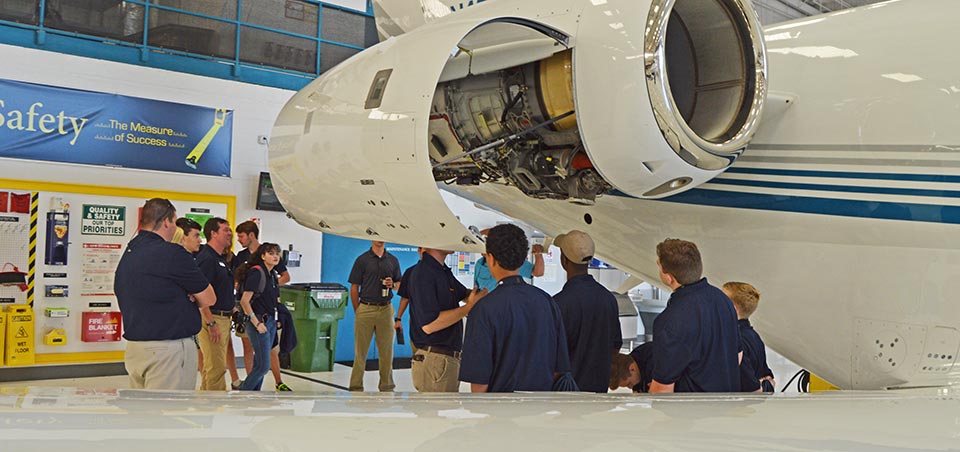
July 19, 2016
A variety of summer experiences, aimed toward middle and high school students, are sparking interest in aviation and aviation-related careers – including business aviation.
“These summer experiences are so important to the kids and to our industry as a whole,” said Kristi Ivey, NBAA’s Northwest regional representative. “Young people often think a career in aviation is out of reach or impractical. Or they think it means flying airplanes, because they have no exposure other aspects of the industry.
“These programs will continue to be crucial to growing a competent workforce that is passionate about aviation,” she added.
The camps’ emphasis on the importance of general aviation – including business aviation – as an industry that supports more than 1 million American jobs, reflects a central theme of the No Plane No Gain advocacy campaign, jointly sponsored by NBAA and GAMA.
“Our goal is to build an investment in the community by getting kids interested in aviation,” said Justin Waugh, from Summit Aviation of Bozeman, MT, which offers a wide variety of summer programs for kids ages 9 to 17.

One of Summit Aviation’s programs is a one-week camp specifically for young cancer survivors. Big Sky Kid’s Flight Camp includes one-on-one instruction with a certified flight instructor, over 10 hours of flight time in Diamond aircraft, ground school courses covering topics like basic aerodynamics and cross-country flight planning, as well as behind-the-scenes tours of the traffic control tower and private hangars. The week also provides an opportunity for campers to see Montana’s greatest natural features, including Yellowstone National Park and the Grand Tetons.
“Flight Camp is by far one of the best aviation experiences I have had the privilege of being a part of,” said Waugh. “The campers had to spend the early part of life fighting for survival against a terrible disease, and being able to give them a chance to fly and see Montana from above is an incredible gift.”
Summit Aviation also conducts airport tours through YMCA and other group summer camps, during which kids get to visit the airport fire department, sit in the airplane and walk through a pre-flight check. Summit Aviation offers a Flight Explorer day camp, during which kids learn cross-country flight planning and GPS navigation, then navigate an airplane to pre-determined locations.
“Ninety percent of the time, when you ask someone why they want to fly, they say, ‘I always wanted to as a kid,’ but in our education system or everyday lives, we lose that as a potential career goal or even as a hobby,” Waugh said. “The kids’ camps allow us to solidify that first spark for aviation by connecting it to actual flying.”
Several colleges and universities across the country, including Auburn University and the University of North Dakota, host residential summer camps and other aviation-related programs. These typically provide attendees with a broad range of aviation exposure, not just limited to flying. Here, students learn about aircraft maintenance, air traffic control and more.
Auburn University hosted 40 high-school students in two camp sessions this summer.
“The goal of the camp is to show students a lot of different career options from [business] aviation to airlines to ATC and maintenance and more,” said James Birdsong, professor of aviation at Auburn University. “The camp helps them start to connect the dots between what they think they want to do and how to pursue that journey.”
To specifically highlight business aviation as a possible future career, Auburn University has developed a relationship with Cox Enterprises. Campers visit the Cox flight department hangar at Fulton County Airport (FTY) in Atlanta, GA to learn more about business aviation and the myriad of careers available in this segment of the industry. According to Birdsong, the exposure to different aspects of aviation is a successful approach.
“The program inspires and empowers students to move toward a career in aviation,” he said.
